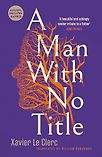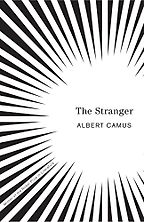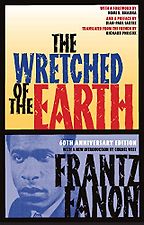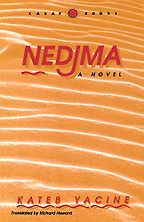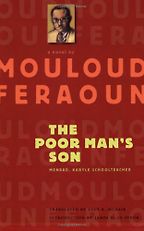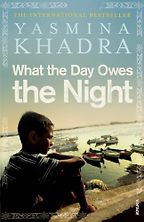To start, tell me a bit about Algeria and what’s special about it—and, also, what your connection with it is.
Algeria has a vast amount of landscape, from the Mediterranean Sea to the mountains to the Sahara Desert. It’s a country that is about five times the size of France, with great resources. Did you know Algeria does not have any debt? It’s one of the rare countries in the world that has a massive surplus and perhaps it’s time for the West to change its patronizing approach to Global South countries—always giving them lessons on how to manage themselves. Meanwhile, both France and the UK are riddled with debt.
Two thirds of Algeria’s population is less than 30 years old. It’s extraordinarily young and therefore very hopeful about its future. People are highly educated in Algeria. Post Algeria’s independence in 1962, there was a Soviet-style, Cold War approach to national education—a bit like Cuba—and this country that had been quite deprived for so long had access to education. Today, many doctors in Paris are Algerian.
As far as I’m concerned, it’s time to perhaps change the outlook we have and the biases we have towards Africa in general, and Algeria in particular.
I was born in Algeria. My parents are both from there. My father was born in the 1930s. Albert Camus was also Algerian and lived in a poor neighborhood in Algiers. In 1939, when he was 25, he took the bus to the mountains and wrote a series of articles there. He witnessed a great poverty, people suffocating from hunger and bodies piled up.
Camus explains this poverty is because of a colonial system that asphyxiates people. As an indigenous person, in order to work, you had to pay for a permit, there was a double taxation system, and the interest rate was 110%. It was horrendous. They were not even allowed to collect wood to make food or to warm themselves up. As a result, people had to survive by eating roots. That’s what my book is about. My father was one of these children that Camus described, dressed in rags, fighting wandering dogs to survive.
My father’s story is of a child who ate roots to survive, then uprooted himself for us, his children, to root ourselves in the West. It was a wonderful sacrifice, and it’s a tribute to him and to his generation.
My father’s story is nothing special in that regard. It’s the story of millions of migrants who came and worked in Europe, were used as cheap labor, and then, later on, were victimized, bullied and used as scapegoats for all the troubles we have to this day.
We have had years of xenophobic rhetoric, with Brexit here in the UK, and in France we also have our fair share of racism. There’s the narrative of the National Front, now called the Rassemblement National—an ironic name hiding the simple reality that it is about division.
Algeria is very dear to me not only because it’s my cradle but because it’s a wonderful encapsulation of the colonial story: one of exploitation, of hope, of struggles.
You mentioned your book, which is called A Man with No Title. Is it a memoir? I’ve seen it described as a novel, but it is in fact your father’s and your story, is that right?
Yes, but we have to be very careful about what we think are facts. Even the notion of memoir means reliant on memory, and memory is a pure novelist by definition. I think it should be called a novel, because it relies on memories, which are highly subjective. It’s your interpretation, it’s how you recall things, and I would even say how you survive things, the way you tell yourself a story. We all do that.
So I try to be as authentic as possible, but obviously bits have to be fictionalized to gel with one another. Also, I wasn’t around in the 1930s where the novel starts, so this is my vision of how things happened. Was there really a bird flying across the sky? Most likely, yes, but I don’t know. It’s different from my own memories of my childhood. So it is a novel, if we apply the definition of the genre, but it is as authentic as a memoir.
It’s a beautiful book.
Thank you very much. I hope so.
Let’s talk about some of the other books you’re recommending about Algeria. You’ve already mentioned Albert Camus. The book by him you’ve chosen is from 1942: The Stranger, as it’s often called in English.
Yes, it’s called The Stranger, and sometimes The Outsider, depending on the translation.
It’s the story of a character called Meursault. One day, he’s on the beach, and he shoots a character called an Arab. They have no specific name—he was an indigenous person on the beach. A trial takes place and we realize that Meursault is facing what Camus calls the “nakedness of man faced with the absurd.” He is floating about, really. He doesn’t show empathy. He doesn’t show remorse.
Everything is absurd. The novel starts, in fact, with him just finding out his mother has died. He doesn’t seem to be mourning or grieving or expressing strong feelings.
To me, it’s a very, very important book. It’s an allegory of Algeria and the colonial system, because lots of people in Algeria were behaving like Meursault, in a way. They would shoot someone and show no remorse. They would live in a country that is occupied, and act as if history wouldn’t judge them, as if it was perfectly normal and there was no reason to be agitated. Perhaps you should be agitated if you live in a country that has been occupied for 130 years. Perhaps you should question yourself if someone has been shot by your trigger. It’s Camus addressing this issue of the blind spot, the blind spot of the colonial figure, in the face of the absurdity of being in a country where most people are indigenous, and yet it’s not their country. Most people are rooted in this country, and yet they’re treated like foreigners, like outsiders in their own country.
For me, it’s also a very touching book, because my father was a strange synthesis of both the indigenous person that got shot on the beach and Meursault himself. Why? Because my father was among those people that was very quiet, who didn’t complain, who would never moan about his life, and could come across like him, as detached and floating, somehow.
That always interests me about the human condition. To some extent, we are all the Meursault of another in the face of the absurd.
Let’s go on to the next book, which is a work of nonfiction by Frantz Fanon, The Wretched of the Earth. He wasn’t from Algeria, but he spent a lot of time there, is that right?
He considered himself Algerian. He was indeed originally from Martinique, but he spent his life in Algeria, with the exception of the time he was fighting the Nazis in France. He was a doctor and a psychiatrist, and he wrote about what the colonial system inflicts psychologically on the indigenous. He joined the independence movement in Algeria very early on.
His book, The Wretched of the Earth, is extraordinarily important because he’s talking about the necessity of violence to assert one’s dignity after being humiliated for so long. He then raises the question of what we do with that violence. Do we consume ourselves with it? And eventually he acknowledges that that is not a viable option. It is perhaps a transition to assert oneself after being silenced for so long, but eventually one has to overcome that violence.
This is highly relevant to understanding the colonial system. My father was a very quiet man, but he could burst with anger every now and then. He was very much a man of the 19th century. I’m not making any judgment about it, but I often link my father’s personality with this book by Frantz Fanon because I find the question of humiliation and assertion is important. There’s an ambivalence: on the one hand, you’re being silent. On the other, you’re bursting with anger.
I grew up in France, in the suburbs of Caen, in a family of nine children. I was a child of the 80s. I was part of a generation of Black and North African people. We were not considered French—we were not allowed to enter a nightclub. It was segregated. Then we found ourselves in the 90s with happy globalization, and we were not given access to jobs. We were the children of migrants who had experienced colonization and colonial history directly and I wonder how much we have closed that chapter of colonial violence and exploitation and segregation.
And your father told you his bursts of anger were because of what happened to him during the Algerian war for independence?
Yes. He was tortured during the war for independence in the most horrid way possible. He never talked about it until I was 18, when he tried to commit suicide. He failed, went into a coma, woke up in hospital, and only then told me what happened. It is really tragic. It explained all those outbursts of anger and all these moments where he couldn’t find words to express himself. He was a father who tortured himself with those memories.
Let’s go on to the next book. This is the novel Nedjma by Kateb Yacine, which was published in 1956. Tell me more.
Kateb Yacine is one of the most illustrious French-speaking Algerian writers. He was quite a complex and labyrinthine poet at first. Nedjma is an allegory of Algeria. It was also the name of his cousin, whom he was deeply in love with. In Arabic, Nedjma means star. She was already married, so it was a complicated, unfulfilled love story.
Nedjma is a very complex story, because he recalls the very mythical past of Algeria, going back many, many centuries to the Numidians. One has to understand that Algeria has a vast, complex history. We had different influences. We had the Romans for 400 years. We had the Ottomans for 300 years. France was only there for 130 years. He plunges into the mythical past and it’s almost like an ancient Greek chorus. It’s very labyrinthine, but it’s very much the allegory of Algeria through Nedjma.
I’ve got a huge admiration for Kateb Yacine. He traveled a lot and did very menial jobs all his life, in France and in Belgium. He even went to Russia. He did what he could. He was very involved in the independence war from an early date, following the massacre in Sétif in 1945. He got arrested and went to jail for a few months. That’s when he became resolutely independentist. He saw many relatives being killed. In fact, 45,000 people were killed by the French following that riot for freedom. It was very, very sad. A lot of Algerians fought against the Nazis, freeing France. Then, when they themselves started to dream of independence, they got crushed and it escalated into a mass murder. Those 45,000 people were killed not so far from where my father and his family lived.
There’s an anecdote that in 1956 Kateb Yacine’s publisher said to him, ‘Oh, it’s very complicated, this story of Nedjma. Why don’t you write about sheep? You’ve got such lovely sheep in your mountains!’ That, to me, shows a great deal about how far we’ve come in terms of our relatedness and how we’ve been treated as colonized people.
It sounds an amazing novel, with all that history.
It is. Kateb Yacine is not necessarily about the meaning as much as it’s about the feeling. As I said, he’s a very labyrinthine author. A lot of people get lost when they start reading Marcel Proust for the same reason. They think, ‘Oh so many aristocrats and so many encounters and so many pages, I’m lost.’ But that’s exactly what he wanted you to do. He wanted you to forget what you’ve just read three pages before. He wanted you to enter a transient state where you forget yourself and enter a dream-like feeling, where you yourself start reminiscing about your childhood. That’s when literature is not necessarily a washing machine manual with utter precision on each page. Sometimes we don’t remember the exact fact. What we remember is the feeling, the sensation. It’s a trigger for an emotion, and that’s the most important takeaway one can have with a good book. And I think Kateb Yacine is one of those authors.
Next up you’ve chosen The Poor Man’s Son by Mouloud Feraoun.
This book was published in 1954 in the midst of Algeria’s independence war when there was a lot of violence. Mouloud Feraoun was one of these rare indigenous children who went to school, became a teacher and quite a brilliant one. He came from the mountains, he’s a Kabyle writer but he had access to a Western education and outlook.
He met with Albert Camus and befriended all the great writers of the time. He read William Faulkner (just like Kateb Yacine, by the way). These writers are in a go-between situation, between their native roots and the French outlook. The issue of using the French language—the language of the colonizer—is at the heart of what they do.
It’s very much an autobiographical novel. When he talks about the poor man’s son, it’s his own story. He was a great, great figure, Mouloud Feraoun. Albert Camus had great admiration for him as well.
Was Camus also from that area?
Camus was born in Mondovi, which is now Annaba, and grew up in a poor neighborhood of Algiers called Belcourt. He was a very, very poor child. He almost stopped going to school because his few relatives, including his grandmother, wanted him to start making money waxing people’s shoes in the street. His teacher interceded and convinced his grandmother that he had potential and had to stay at school, which he managed to do. He became a Nobel Prize winner in 1957.
My book is also a tribute to teachers. It’s not an angry book at all. I’m not settling accounts. I’m just telling our story. But it is the story of France, not just of Algeria. To some extent, it’s also the story of England, with regards to India and its imperial history. It’s to do with moving forward together and not against each other. It’s about forgiveness as well.
It’s a tribute to teachers because I’m also the child who benefited. I’m often asked, ‘How do you manage to love France so much after all of this?’ And it’s simple. I don’t confuse horrid capitalism with France. The West cannot be summarized by just a series of exploitations. There are also ideas like feminism, tolerance, inclusion. It’s a constant movement, and there are so many different people that I would hate to generalize and say, ‘the West is like this, or the West is like that.’ The West is also what allows me to express myself about it.
I’m passionate about a peaceful approach to things. It’s about inclusion, rather than a judgmental approach. The past is the past. It’s a foreign country, as we all know, and we just need to acknowledge it, but also move forward.
Shall we turn to the last book? This one’s more recent, from 2008: What the Day Owes the Night by Yasmina Khadra.
The story in this book is very simple. It’s a love story between Emilie, a French girl living in Algeria and Younes, who calls himself Jonas, to pass off as a more European person among his friends. He falls in love with her, but then, with the fight for independence, he’s torn between his native roots and world that’s exploited and this European way of life. He really is torn apart.
It’s a beautiful, beautiful book. Yasmina Khadra writes beautifully, very simply. He’s underappreciated, I think. He uses a female name because he used to be a general in the army, so he was not allowed to write—he had the duty of reserve, as they call it. So he took his wife’s name, and as a tribute, he decided to keep it. He’s written over 30 novels. He’s a global phenomenon: we all know Yasmina Khadra. But a lot of snobs out there do not want to acknowledge him, because the moment you reach commercial success, you’re good to be hated. I know what it takes to write, and I have a huge amount of respect for him. His stories are spectacular. And, as a person, I was blessed to meet him. He’s a very warm, lovely person. He is one of the key contemporary writers in Algeria.
We have great writers. Algerian writers are able to see the world as an open land. They’re not closed off. It’s quite remarkable that a boy born in the 1950s, under the French colonial system, managed to become such an amazing writer. It takes a lot of courage, actually. So I’m a huge admirer of Yasmina Khadra.
Interview by Sophie Roell, Editor
October 19, 2024. Updated: November 13, 2024
Five Books aims to keep its book recommendations and interviews up to date. If you are the interviewee and would like to update your choice of books (or even just what you say about them) please email us at [email protected]
Five Books interviews are expensive to produce. If you've enjoyed this interview, please support us by donating a small amount.

